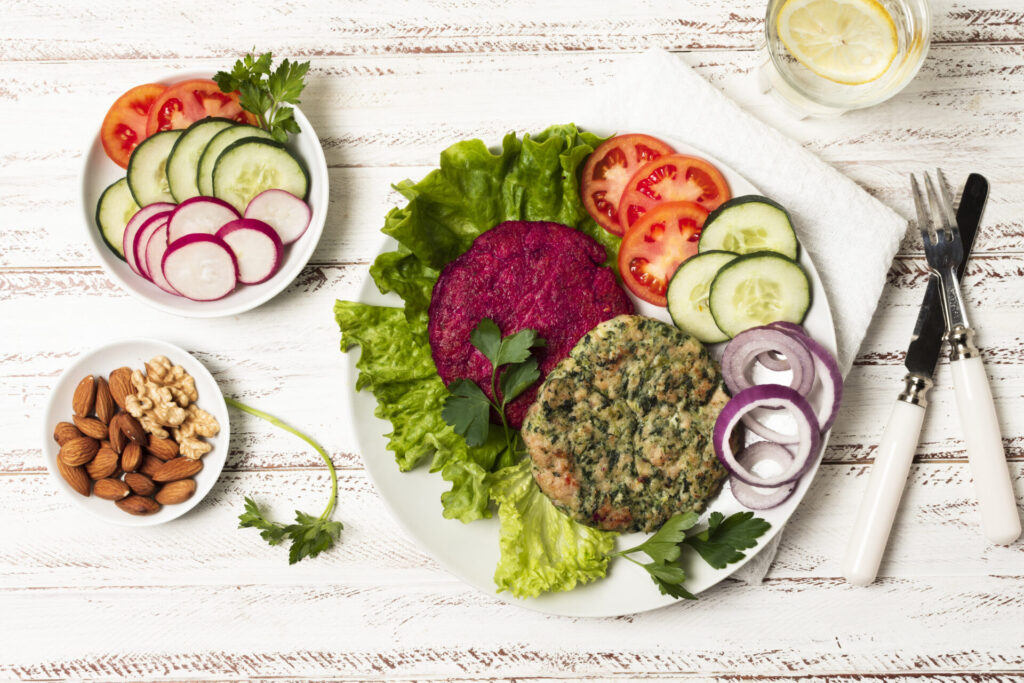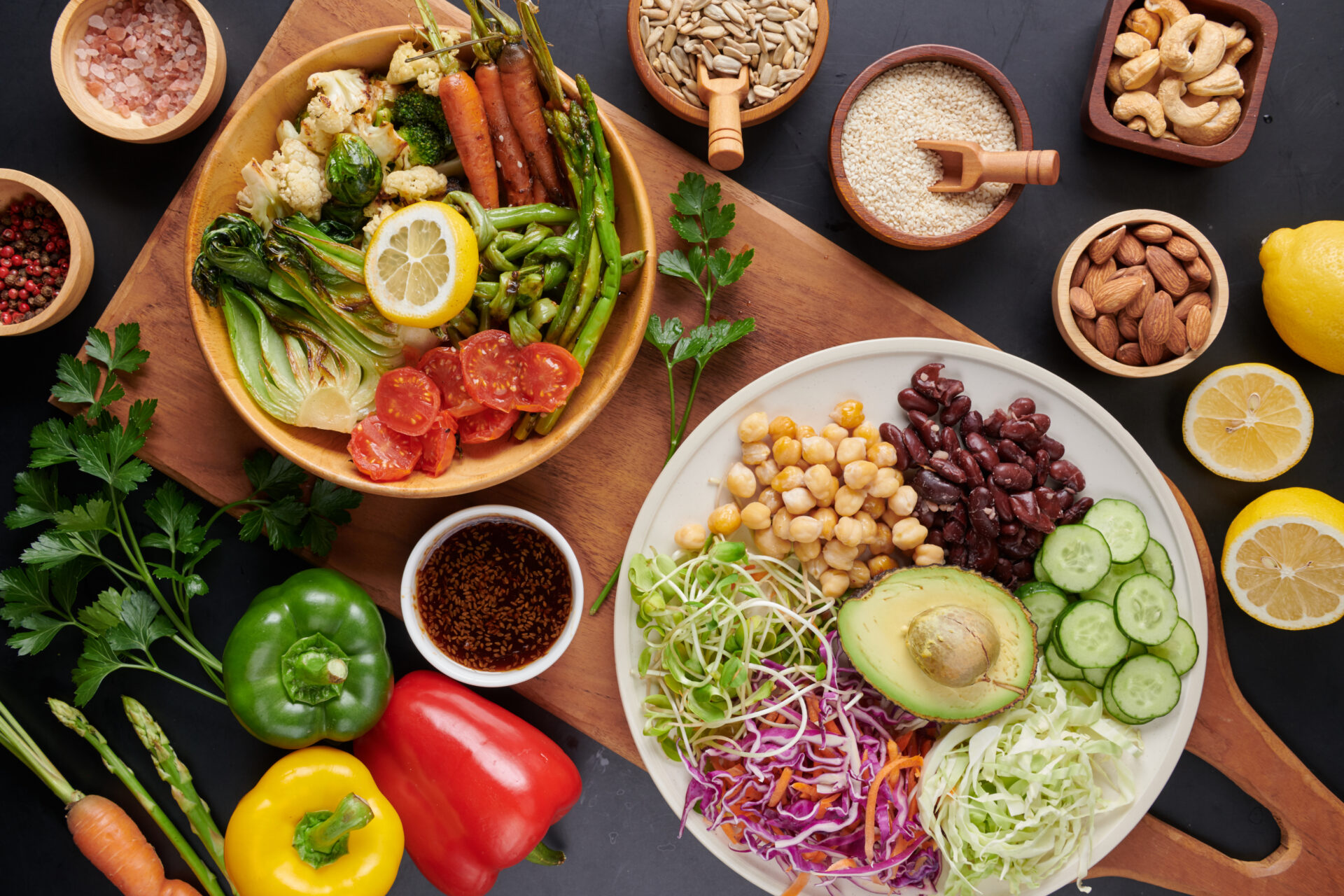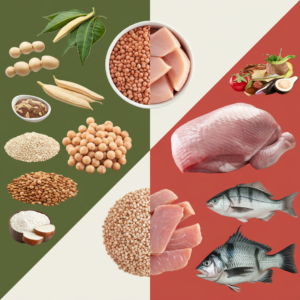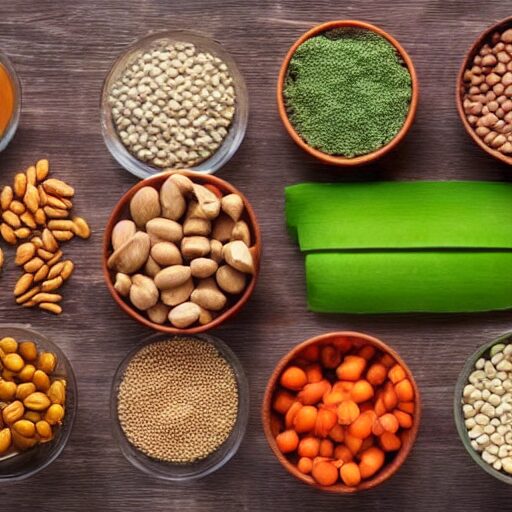Unleashing the Power of Plant-Based Proteins: A Holistic Approach
Contents
- 1 Unleashing the Power of Plant-Based Proteins: A Holistic Approach
- 1.1 The Benefits of Plant-Based Proteins: A Comprehensive Guide
- 1.2 read more posts
- 1.3 read more posts
- 1.4 Tips for Transitioning to a Plant-Based Diet
- 1.5 6. Common Myths and Misconceptions about Plant-Based Proteins
- 1.6
- 1.7 7. Comparing Plant-Based Proteins to Animal-Based Proteins
- 1.8
- 1.9 Conclusion: Embracing the Benefits of Plant-Based Proteins
- 1.10 read more posts
- 1.11 FAQs with Answers
Read DISCLAIMER
Discover the surprising health benefits of plant-based proteins in this comprehensive guide. Learn how they can improve your health, support weight management, and contribute to a more sustainable planet.
In recent years, plant-based proteins have been taking the health and wellness world by storm! With their countless health benefits, positive impact on the environment, and ethical considerations, it’s no wonder more and more people are jumping on the plant-based protein bandwagon.
If you’re looking to make the switch to a more plant-forward diet, understanding the ins and outs of plant-based proteins is key. That’s where this comprehensive guide comes in. We’re here to dive deep into the nutritional benefits, health implications, and environmental impact of incorporating plant-based proteins into your diet.
Say goodbye to common myths and hello to practical tips for seamlessly integrating plant-based proteins into your meals. This article is your one-stop shop for embracing the diverse advantages of plant-based protein sources. Get ready to revolutionize your diet and your health with the power of plants!

The Benefits of Plant-Based Proteins: A Comprehensive Guide
1. Introduction to Plant-Based Proteins
Exploring the World of Plant-Based Proteins
Plant-based proteins are the trendy, eco-conscious alternative to traditional animal proteins. Derived from plants such as legumes, nuts, seeds, and grains, they provide a sustainable and compassionate option for those looking to make a positive impact.
The Rise of Plant-Based Diets
Plant-based diets are taking the world by storm, with a growing number of individuals embracing the veggie lifestyle for health, environmental, and ethical reasons. From flexitarians to dedicated vegans, plant-based proteins are enjoying a well-deserved moment in the spotlight. Join the movement and discover the delicious and nutritious world of plant-based proteins today!
2. Nutritional Benefits of Plant-Based Proteins
Unlock the Power of Proteins: Complete vs. Incomplete
When it comes to proteins, not all are created equal. Complete proteins, such as those found in quinoa and soy, are the superheroes of the protein world, containing all essential amino acids your body needs. On the other hand, incomplete proteins, like those in beans and grains, can team up to create a complete protein powerhouse that will fuel your body with the nutrients it craves.
Discover the Hidden Gems in Plant-Based Proteins
Plant-based proteins are not just about protein – they are a treasure trove of essential nutrients! Packed with fiber, vitamins, and minerals, these proteins offer a well-rounded nutritional boost that will leave your body feeling energized and revitalized. Say hello to a healthier, happier you with the power of plant-based proteins!”

3. Health Benefits of Plant-Based Proteins
Boost Your Heart Health with Plant-Based Proteins!
If you want a happy heart, look no further than plant-based proteins. Studies have shown that they can help lower cholesterol levels and reduce the risk of heart disease. So, why not swap that burger for a delicious black bean salad and give your heart some love?
Achieve Your Weight Management Goals with Plant-Based Proteins!
Trying to shed some pounds? Plant-based proteins are here to help! They are often lower in calories and saturated fats compared to animal proteins, making them a fantastic choice for anyone looking to slim down. Say goodbye to excess weight and hello to a healthier, happier you!
read more posts
4. Environmental Impact of Plant-Based Proteins
Sustainability of Plant-Based Proteins
The sustainability of plant-based proteins is a hot topic right now, and for good reason! Livestock farms are notorious for their contribution to greenhouse gas emissions, deforestation, and water pollution. But fear not, by choosing plant-based proteins, you are making a positive impact on the environment and supporting a more sustainable future.
Reducing Carbon Footprint with Plant-Based Proteins
Let’s talk about reducing our carbon footprint with plant-based proteins! Animal agriculture is a major culprit when it comes to carbon emissions, but plant-based proteins have a much smaller carbon footprint. By incorporating more plants into your diet, you are not only doing your body a favor but also helping to lower greenhouse gas emissions and protect our planet. It’s a win-win situation! So let’s get excited about the power of plant-based proteins and the positive change they can bring to our world.

5. Incorporating Plant-Based Proteins into Your Diet
Not only are they a fantastic source of essential nutrients like fiber, vitamins, and minerals, but they also have a positive impact on the environment by reducing greenhouse gas emissions and water usage compared to animal sources. By including a variety of plant-based proteins such as legumes, nuts, seeds, tofu, and quinoa in your meals, you can easily meet your daily protein needs while enjoying delicious and nutritious foods. Whether you’re looking to improve your health, support sustainable practices or simply diversify your plate with new flavors and textures, plant-based proteins offer endless possibilities for creative and satisfying meals that nourish both body and soul. Embrace the power of plants and experience the vibrant energy that comes from fueling your body with wholesome goodness!
read more posts
Tips for Transitioning to a Plant-Based Diet
Transitioning to a plant-based diet is as easy as sipping on a refreshing tropical smoothie! Begin by slowly swapping out animal products for delicious plant-based alternatives. Familiarize yourself with legumes, beans, tofu, and quinoa – they will quickly become your go-to ingredients. And don’t forget, variety is key to a vibrant life! Experiment with a range of plant-based protein sources to keep your palate excited and satisfied. Get ready to embark on a flavorful and fulfilling journey towards a healthier lifestyle!
Recipes and Meal Ideas Featuring Plant-Based Proteins
Who says plant-based food has to be boring? Get ready to tantalize your taste buds with delicious lentil tacos, flavorful chickpea curry, or a vibrant quinoa salad. And let’s not overlook the amazing avocado – it’s not just a trend for millennials! Treat yourself to energizing smoothies packed with plant-based protein powder or a satisfying veggie stir-fry that will have your taste buds dancing with joy. Let’s make plant-based eating exciting and delicious!

6. Common Myths and Misconceptions about Plant-Based Proteins
Debunking the Protein Myth
Ever been asked, ‘But where do you get your protein from?’ Sound familiar? Well, let me tell you a little secret – plant-based proteins are the real deal! Contrary to popular belief, beans, nuts, seeds, and even broccoli are packed with all the essential amino acids your body needs. So next time someone questions your protein intake, just flex those plant-powered muscles and show them what you’re made of
Addressing Concerns about Nutrient Deficiency
Concerned about missing out on essential nutrients? Worry not! A well-rounded plant-based diet has got you covered. Iron-rich spinach, calcium-packed fortified plant milks, and omega-3 fatty acids from flaxseeds are just a taste of the incredible array of nutrients you can easily obtain from plants. Embrace the power of plant-based eating and fuel your body with all the goodness it needs!
7. Comparing Plant-Based Proteins to Animal-Based Proteins
Nutritional Profile Contrasts
Plant-based proteins offer more than just protein. They are typically lower in saturated fats and cholesterol, making them excellent choices for heart health. Additionally, they are rich in fiber, antioxidants, and phytonutrients that animal-based proteins simply cannot match. It’s like a nutritional showdown – and plants are the undisputed champions!
Health Implications of Choosing Plant-Based over Animal-Based Proteins
Opting for plant-based proteins isn’t just beneficial for your health – it’s also a win for the planet! Plant-based diets have been proven to lower the risk of heart disease, diabetes, and certain types of cancer. By swapping out animal products for plant-based options, you’re not only nourishing your body, but you’re also making a positive impact on the environment. Join the movement and help save the planet, one delicious meal at a time!
Conclusion: Embracing the Benefits of Plant-Based Proteins
Plant-based proteins offer a delicious, nutritious, and sustainable solution to fueling your body. Whether you’re a dedicated vegan, a flexible flexitarian, or simply looking to spice up your protein routine, incorporating more plant-based proteins into your diet can benefit both you and the planet. It’s time to sow the seeds of change and reap the mouthwatering rewards of a plant-powered diet!
Transitioning towards a diet rich in plant-based proteins not only provides a plethora of health benefits but also positively impacts the well-being of our planet. By making conscious choices and incorporating plant-based sources into your meals, you can take a significant step towards a more sustainable and nourishing lifestyle. Embrace the versatility and goodness of plant-based proteins, and revel in the positive influence they can have on your health, the environment, and the world around you.
Embracing plant-based proteins isn’t just a dietary decision; it’s a commitment to a healthier, more sustainable, and compassionate way of living. As awareness of the benefits grows, the movement towards plant-based eating continues to expand, offering a future where nutritious, sustainable, and ethical food choices are the standard. By making informed choices and adding more plant-based proteins to your meals, you can enjoy a multitude of health benefits while also contributing to a better world. Start today and witness the incredible impact of a plant-powered diet on your health and the environment!
read more posts
FAQs with Answers
1. Can plant-based proteins provide all the essential amino acids that our bodies need?
Yes, while some plant-based proteins are incomplete (lacking one or more essential amino acids), combining different sources such as beans and rice can create a complete protein profile.
2. Are plant-based proteins as effective as animal-based proteins for muscle building and recovery?
Yes, with careful planning, plant-based proteins can be just as effective. Incorporating a variety of sources like lentils, quinoa, and tofu can ensure you get all the essential amino acids needed for muscle repair and growth.
3. How can I ensure I am getting enough protein from plant-based sources in my diet?
Focus on including a variety of protein-rich plants such as legumes, nuts, seeds, and whole grains. Consider supplementing with plant-based protein powders if necessary, especially if you have higher protein needs.
4. Is it difficult to transition to a plant-based diet?
Transitioning to a plant-based diet can be gradual. Start by incorporating plant-based meals a few times a week, and explore different recipes and protein sources to find what you enjoy.
5. Are there any potential nutrient deficiencies with a plant-based diet?
While a well-planned plant-based diet can meet all your nutritional needs, you should monitor your intake of nutrients like B12, iron, calcium, and omega-3 fatty acids. Supplements may be necessary in some cases.
6. How do plant-based proteins compare to animal-based proteins in terms of environmental impact?
Plant-based proteins have a significantly lower environmental impact, requiring less land, water, and energy to produce. They also contribute to lower greenhouse gas emissions.
7. Can children and pregnant women follow a plant-based diet?
Yes, with proper planning, children and pregnant women can meet their nutritional needs with a plant-based diet. Consulting a healthcare provider or nutritionist can help ensure balanced nutrient intake.
8. Are there any common myths about plant-based proteins?
A common myth is that plant-based diets lack sufficient protein. In reality, a variety of plant sources can easily meet protein needs, even for athletes and bodybuilders.
9. What are some easy ways to incorporate more plant-based proteins into my diet?
Start by adding legumes like lentils or chickpeas to your meals, trying tofu or tempeh in place of meat, and experimenting with plant-based protein powders in smoothies.
10. How do plant-based proteins affect heart health?
Plant-based proteins are typically lower in saturated fats and cholesterol, which can contribute to improved heart health and a lower risk of cardiovascular disease.
11. Can plant-based proteins help with weight management?
Yes, they are often lower in calories and fat, and high in fiber, which can help with satiety and weight management.
12. How do I combine plant-based proteins to make a complete protein?
Pair incomplete proteins like beans with rice, or peanut butter with whole wheat bread, to ensure you get all essential amino acids in your diet.
13. Are plant-based proteins suitable for people with food allergies?
Many plant-based proteins are suitable for people with common food allergies. For example, if you’re allergic to nuts, you can still get protein from beans, lentils, and grains.
14. What role do plant-based proteins play in sustainable eating?
They reduce the demand for resource-intensive animal farming, lower greenhouse gas emissions, and contribute to more sustainable food systems.
15. How can I make plant-based proteins more flavorful?
Use herbs, spices, and marinades to enhance the flavor of plant-based proteins. Experiment with different cooking methods, like grilling or roasting, to bring out unique tastes.



Can you be more specific about the content of your article? After reading it, I still have some doubts. Hope you can help me.
Thank you for your sharing. I am worried that I lack creative ideas. It is your article that makes me full of hope. Thank you. But, I have a question, can you help me?
I don’t think the title of your article matches the content lol. Just kidding, mainly because I had some doubts after reading the article.
I don’t think the title of your article matches the content lol. Just kidding, mainly because I had some doubts after reading the article.